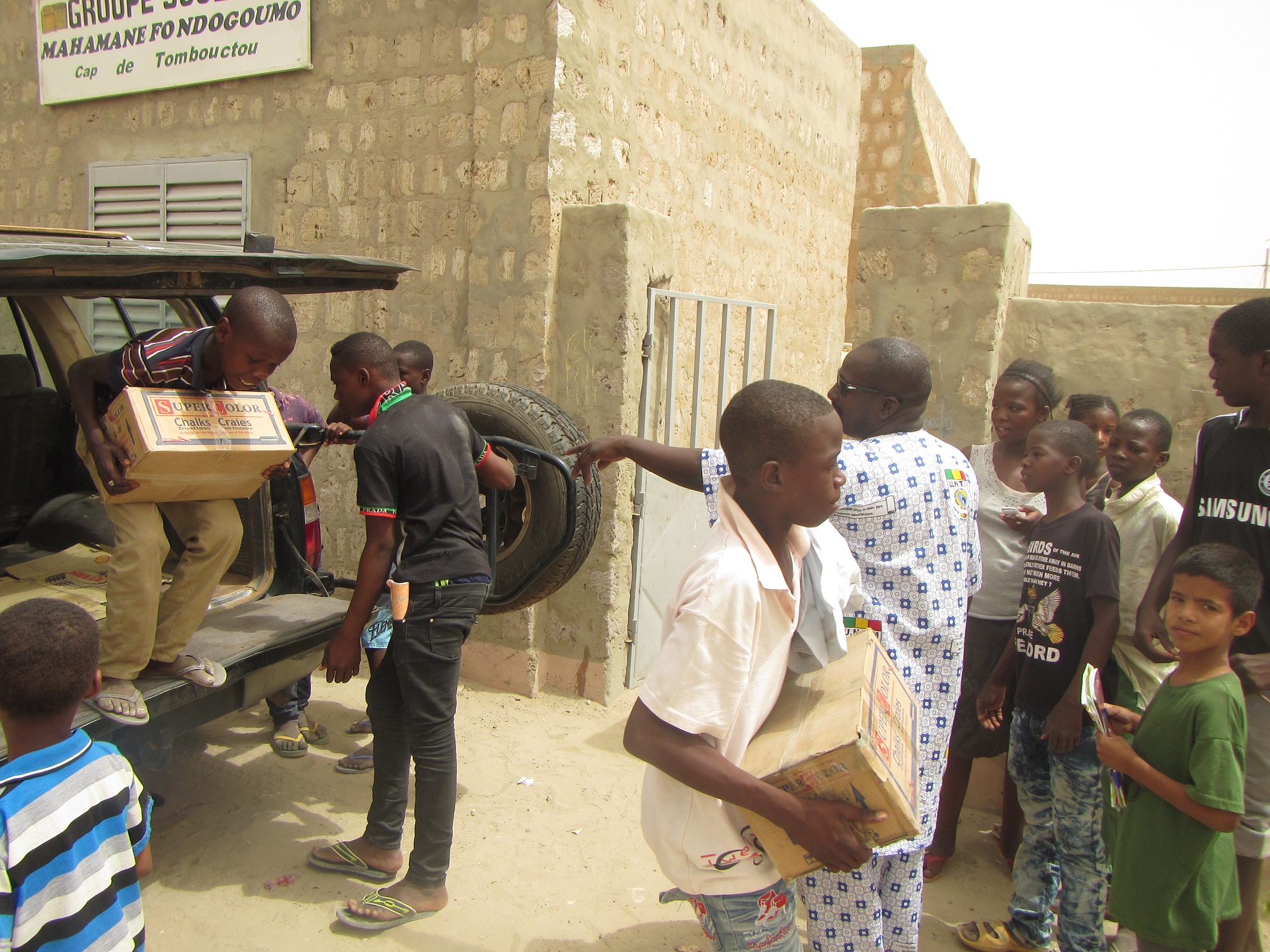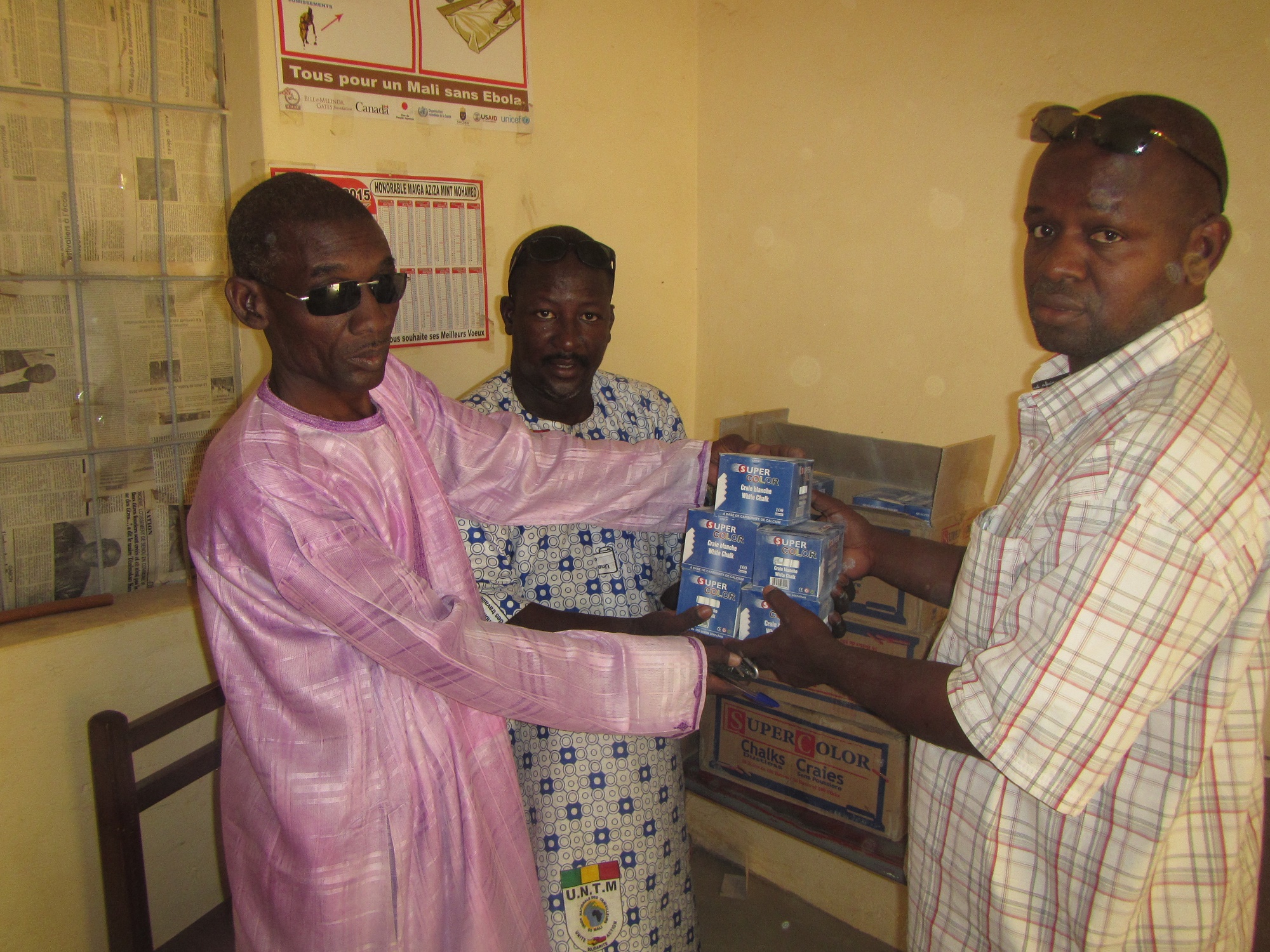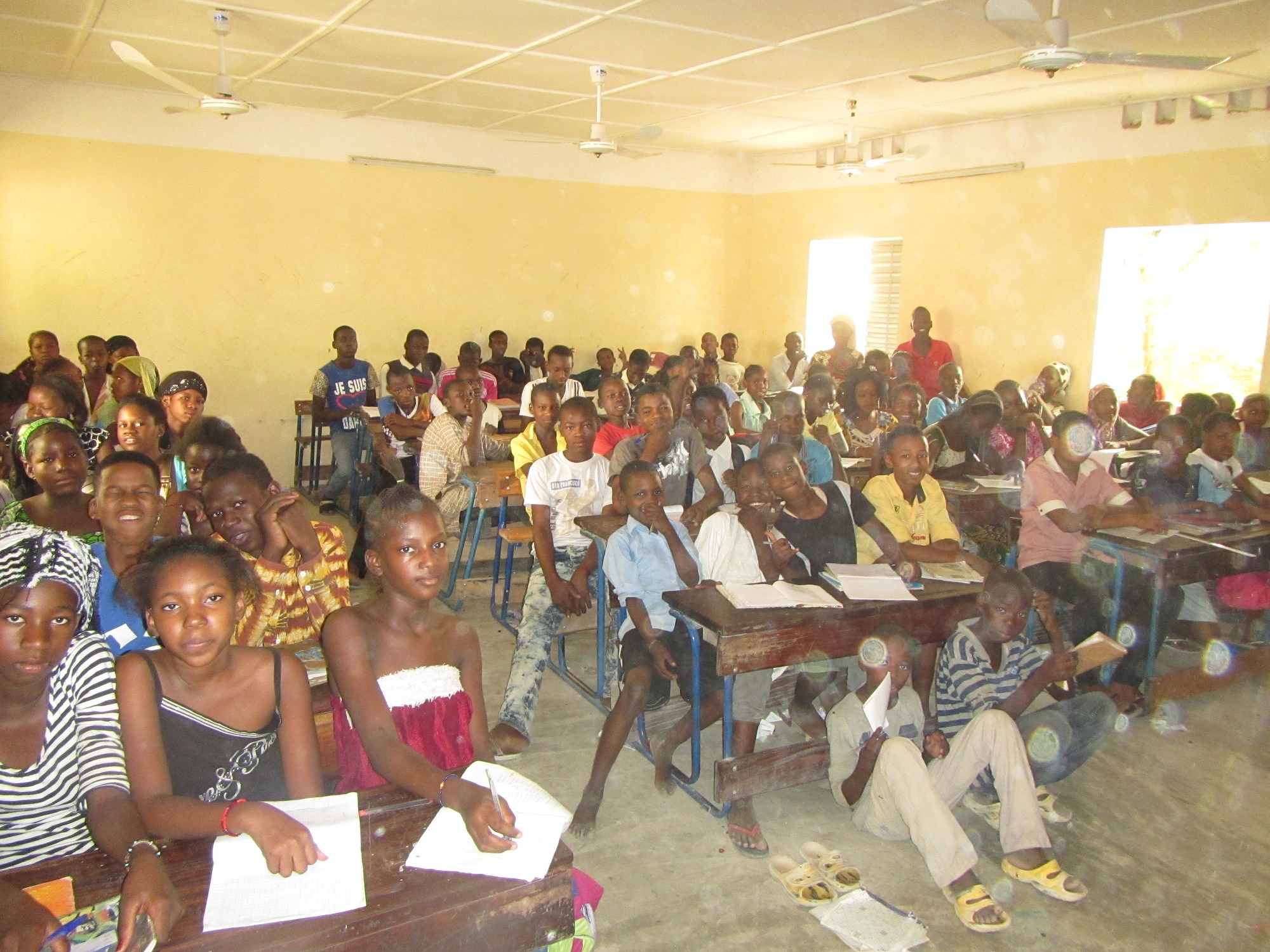



We have so much: public schools financed by tax money, roads with bike lanes, clean air, extremely clean and tasty water out of the tap and electricity at the flip of a switch.Sewer systems and flushing toilets.Hot water from the tap and hot showers. Neighbors we can trust. Relatively smooth highways without bandits or land mines.How about air conditioning? So try to understand a city school that uses unexpected money to buy chalk. Just chalk.
The original plan was to send some money to Timbuktu to help the school buy books — whatever books the professors thought would best serve what they need to teach. Buy the books locally, keep them in the library for long-term benefit.
In no way could I imagine a school so poor that the most urgent need was for chalk.
UPDATE June 23: I’m still processing the chalk instead of books feelings. Part of our sales pitch was that the books would be in the library for long term use, and chalk is a consumable supply item. I struggle with how my own ego was tied to the long term use of our gifts, yet I remain committed to local control and freely given gifts.
As I understand it, Mali has public schools but they are locally financed — in good times a system that pretty much works. Parents have to pay for their children to attend public school with a monthly or weekly tuition. So far so good. Until there are no jobs, no government support, and no tourist spending.
Timbuktu continues to struggle from the unrest in northern Mali. It means that people flee the town for safety. One estimate is that an additional 50,000 people fled the economic and political threats in northern Mali — just in May, 2015.The tourist trade, a decades-long pipeline of money into the region, has tanked.
Another report explains that the local village markets only have the village’s own goods for sale. It is too dangerous for merchants to travel to the next larger town for supplies that only come from the city. Then local farmers and artisans are too frightened to bring even their local goods to the market.
Talk about a cultural and economic death spiral.
So as I go about my blessed life I try not to forget the difficulty and suffering of others who, through no fault of their own, find themselves caught in a web of terrorism and fear. Thankfully, even in the face of those threats, good people continue to educate children and find creative ways to buy chalk for the local school.
Related Images:




